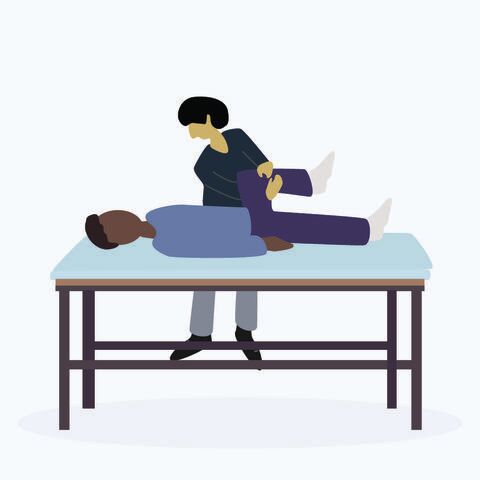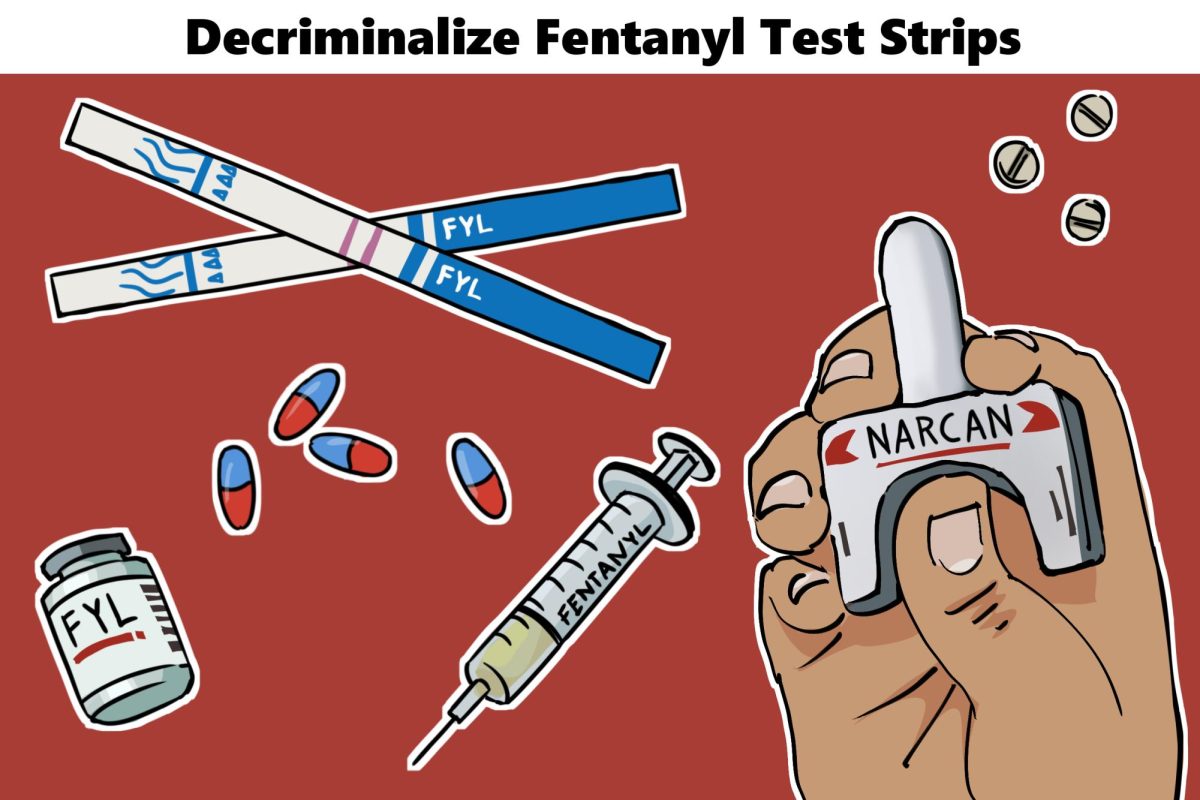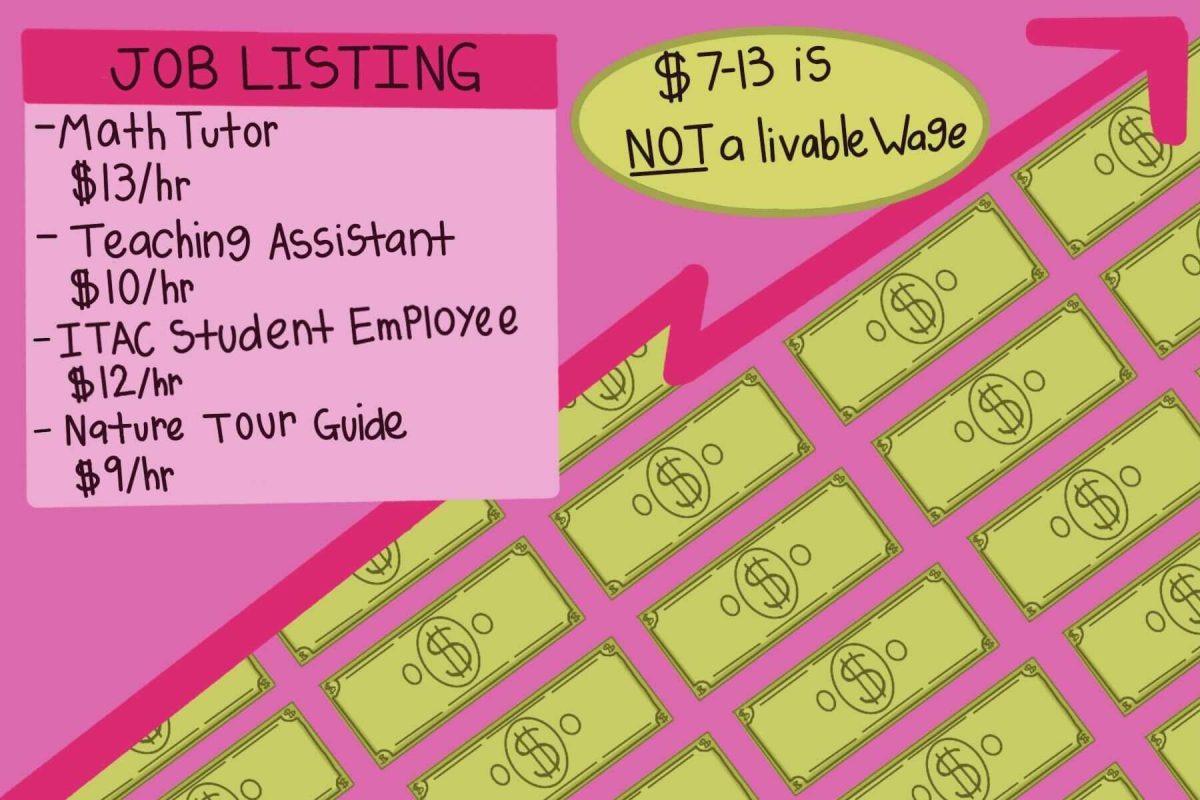Texas State Athletics is prized and celebrated within the San Marcos community, with people coming together every weekend to collectively watch young student-athletes compete in sports.
Although athletes are incredibly talented and driven, as witnessed with the volleyball and basketball teams winning conference championships, respectively, spectators only see the scoreboard or a number plastered to the athlete’s back. What they often do not see is the mental strain student-athletes face daily.
Texas State carries an arsenal of health professionals and athletic training facilities to help produce and maintain athletes’ bodies. However, despite the copious amounts of money devoted to ensuring peak physical performance, Texas State Athletics overlooks the most important part of young adults competing at a collegiate level: The mental game.
Sports psychology is a beneficial and relatively new field dedicated to strengthening the mental health of athletes. To have a more successful athletics division, the university needs to reconsider its priorities and fund a division of sports psychiatry and mental health wellness for student-athletes.
Athletes, like everyone else, deal with a variety of mental health issues like anxiety, depression and eating disorders.
Professional athletes over the years have reported suffering from serious mental illnesses. Terry Bradshaw, sports commentator and former quarterback for the Pittsburgh Steelers, admitted to dealing with anxiety attacks and depression from major brain injuries during his career. Wendy Williams, a former U.S. Olympic diver, was diagnosed with major depression in 1994 after a spinal injury that forced her to retire.
The vulnerability to mental health issues among athletes is high. Yet, universities, like Texas State, do not fund a branch of specialists for their athletes. Alexia Lewis, an athletic training student at Texas State, believes mental health is just as important as physical health and “having a sports psychologist would be beneficial.”
Lewis states that protocol for mental health-related issues with her athletes consists of the head athletic trainer “referring them to a counselor at the university’s Counseling Center.” Beyond that, they are not certified to help with serious struggles that competitive athletes face.
“Athletes deal with a different type of stress and pressure than regular students face,” Lewis says.
It is unfathomable that athletes are responsible for reaching out for help on their own. Sports psychologists who are “more knowledgeable to best aid student-athletes,” Lewis says, should be included in athletic training programs to provide the holistic care that the university promises its athletes.
Stress affects student-athletes differently than it does regular students. Not only do they have to worry about their success in the classroom and the regular drudgery of becoming an independent adult, but they also have to worry about their athletic performance.
In a University Star story earlier this year, men’s basketball senior forward Isiah Small says that he was taught to grow up thinking he was a “Macho Man,” and that counseling services did not work. He describes a lifestyle where he is always striving to be the best version of himself on and off the court — adding to the stress he endures mentally.
Sports have become a part of athletes’ identity. Organized sports require a large investment of time and energy, causing “a loss of autonomy in athletes.” High athletic identity has been linked to psychological distress when this identity is removed.
17.2% of males and 32% of females participating in high-intensity sports experience eating disorders. Some high-level athletes are self-conscious about their bodies, striving to attain “the perfect look.” Some possess a “do or die” mentality and willingness to sacrifice their bodies for their sport.
Another sports-centric mental illness is performance anxiety. Although it is not uncommon for people to feel anxious before big events, performance anxiety for athletes is a trail of negative thoughts surrounding their sport that can seriously inhibit their ability to perform.
Athletes are constantly bombarded with thoughts of failure. Teaching athletes mental strategies to cope with anxiety and learn to perform confidently would help tremendously with their mental health, both on and off of the field.
Heather Rivera, a sports mental performance consultant, says regular therapists do not always have a sports background and do not always understand how to help with sports-specific issues.
“We are athletes — we’ve been there, we know the struggle and we understand what you are going through,” Rivera says.
Athletes and how they fare off the court matter more than their production on a stat sheet. Texas State needs a clinical sports psychologist. Men’s basketball’s Interim Head Coach, Terrence Johnson, who just won a conference title, told The Star as much earlier this year.
“I think it’ll help because our guys would know there’s always somewhere to go to and someone to go to [who] they feel comfortable talking to — [someone] there for that reason,” Johnson says. “These guys are not reluctant to talk with somebody. The only thing is, a lot of times, these guys don’t know where to look, and they don’t know who to ask because they don’t want to expose themselves.”
It is irresponsible to make Bobcat athletes responsible for their own mental health in such a high-pressure and high-intensity environment. Texas State should take care of its athletes. Athletics receives enough support from the university community year in and year out to make it happen.
Correction: An earlier version of this column referred to Alexia Lewis as an athletic trainer at Texas State, rather than an athletic training student. It has since been corrected. We deeply apologize for this error.
– Lindsey Salisbury is an English sophomore
The University Star welcomes Letters to the Editor from its readers. All submissions are reviewed and considered by the Editor-in-Chief and Opinion Editor for publication. Not all letters are guaranteed for publication.
Opinion: Texas State Athletics should fund specialized therapy for athletes
Lindsey Salisbury, Opinion Contributor
March 1, 2021

therapy
0
Donate to The University Star
Your donation will support the student journalists of Texas State University. Your contribution will allow us to purchase equipment and cover our annual website hosting costs.
More to Discover













